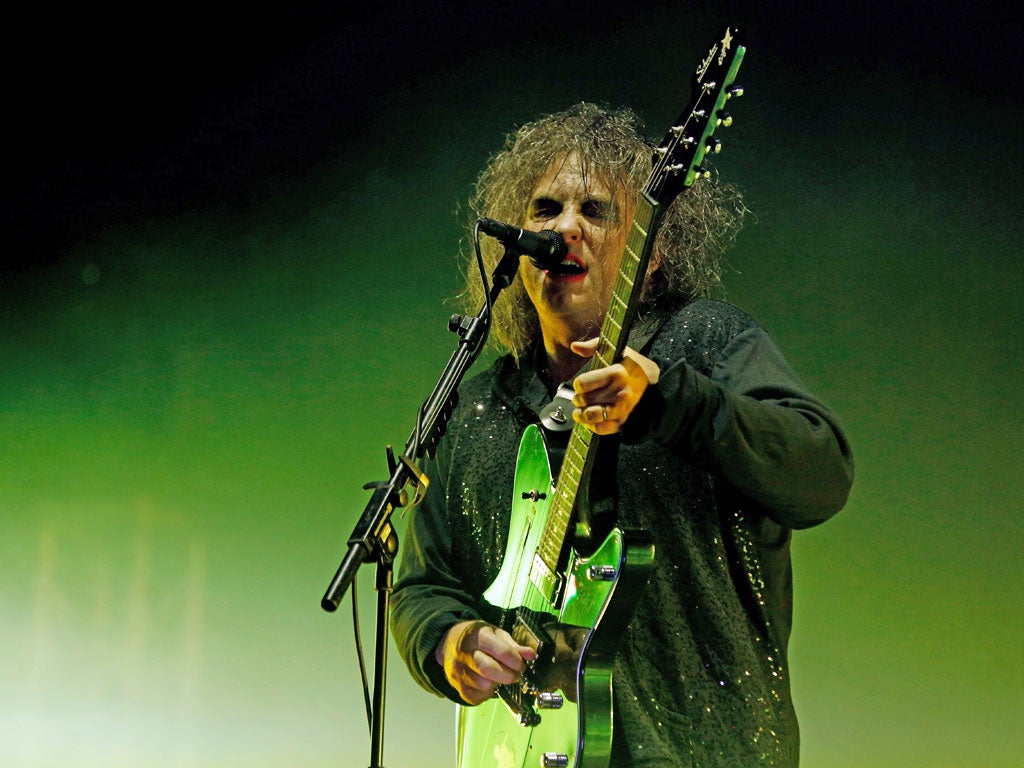First Night: Reading and Leeds festivals
Same old Reading list, but still a rite of passage

Your support helps us to tell the story
From reproductive rights to climate change to Big Tech, The Independent is on the ground when the story is developing. Whether it's investigating the financials of Elon Musk's pro-Trump PAC or producing our latest documentary, 'The A Word', which shines a light on the American women fighting for reproductive rights, we know how important it is to parse out the facts from the messaging.
At such a critical moment in US history, we need reporters on the ground. Your donation allows us to keep sending journalists to speak to both sides of the story.
The Independent is trusted by Americans across the entire political spectrum. And unlike many other quality news outlets, we choose not to lock Americans out of our reporting and analysis with paywalls. We believe quality journalism should be available to everyone, paid for by those who can afford it.
Your support makes all the difference.This year’s Reading bill looks over-familiar from top to bottom, faithfully reflecting a rock scene desperately waiting for new heroes. Foo Fighters, Kasabian and The Cure aren’t headliners to quicken the blood; the latter first played here in 1979. But Reading’s importance in comparison to upstart, upmarket boutique affairs still feels strong. It remains the muddy field where young people first get off the leash and off their faces to music.
“Hi, honey, I’m home,” the Foo Fighters’ Dave Grohl leers on Sunday, at the festival that fits him best. His most infamous Reading appearance remains Nirvana’s swansong 20 years ago, with Kurt Cobain in a wheelchair. This three-hour blow-out is more wholesome hard rock with every edge smoothed off, like being bludgeoned with a toy hammer. Stuttering, contemplative passages in songs such as “Breakout” barely slow their relentless, quickly redundant stride.
Midwest blues-rockers The Black Keys, preceding the Foos, could at their most ordinary have played Reading in 1972. “Nova Baby”’s staccato soul swing is among the recent songs giving them saving, danceable grace.
Kasabian are received as a triumph on Saturday, but singer Tom Meighan comes across as an ageing Oasis fan, not a rock star. Their hollow empire is doomed to fall. Before them, Florence + the Machine are inspired by wild weather, singer Florence, in a fishnet body-suit, finishing rain-streaked and happy. Friday’s headliners The Cure take up 150 minutes, and Robert Smith is in wonderful voice. But “In Between Days”’s delicacy of feeling doesn’t last, during a set whose length smashes holes in the crowd.
Green Day’s surprise gig at 11am on Saturday, as many festival-goers slumber, is the nearest thing to an event. Equivalent punk power, though, is available in the Lock Up tent throughout the weekend. This is where Reading’s rock heart beats, indifferent to trends and headliners. Pittsburgh’s Anti-Flag dedicate The Clash’s “Should I Stay Or Should I Go” to Pussy Riot and Joe Strummer. They’re followed by California’s Social Distortion, Green Day grandfathers who began in 1978. Only singer Mike Ness remains from then, a soft-spoken elder statesman, his anger now worn and restrained. Their cow-punk version of Johnny Cash’s “Ring of Fire” is one festival peak.
Graham Coxon, back to his solo day job after Blur’s big day out at Hyde Park, finds the most creative response to rock’s history, gently bending and pulling apart The Who’s hard R’n’B on “Feel Alright”, and finishing with “I Don’t Wanna Go On”’s strange, bucking take on country-blues.
In a festival mostly geared to music’s passive consumption, Anti-Flag suggest the punk gig experience is an ideal of responsible yet fiercely individual living. Peckham’s Katy B offers a similar philosophy for dance music, and post-rave and pop sounds which would once have been urine-bottled off here are now part of Reading. Look no further than Lady Lykez’s hilarious paen to the weave, “Not My Hair”.
Edinburgh’s Django Django, too, combine wistful vocals, tribal drums and techno synths to become a sort of rave Franz Ferdinand, capable of constant surprise. Swedish-American freaks Miike Snow, meanwhile, deploy ecstatic dance music clichés with cosmic intent, on “The Devil’s Work” recalling Mercury Rev.
The Vaccines are part of the current British rock scene’s problem, all defeatist, ironic disaffection. The lie to that can still be found on the outer stages at night, where The Cribs offer advice to live by at Reading. “Get piercings, set fire to your tent,” orders singer Ryan Jarman. Then he adds, with faith defying current facts: “This is the best festival.”
Join our commenting forum
Join thought-provoking conversations, follow other Independent readers and see their replies
Comments